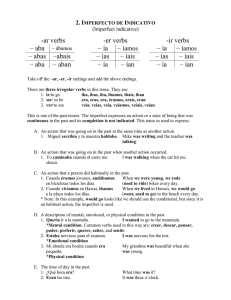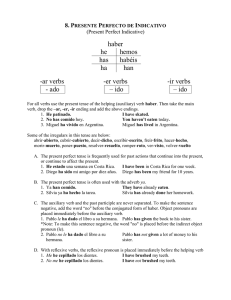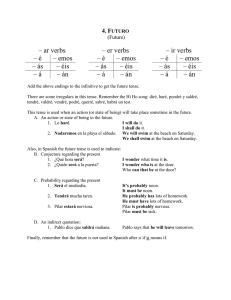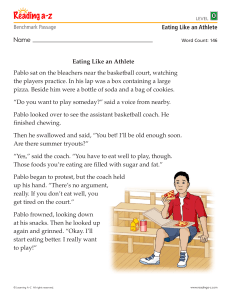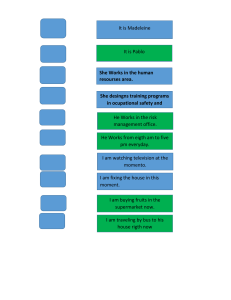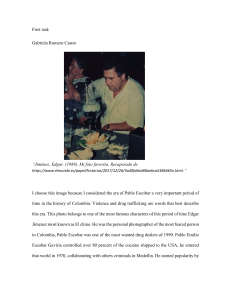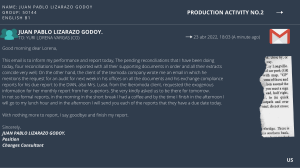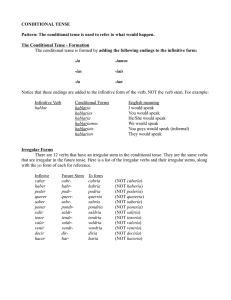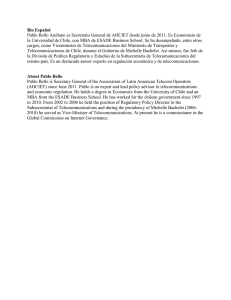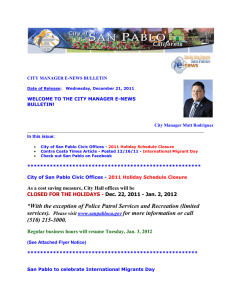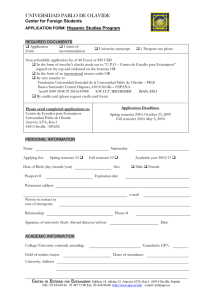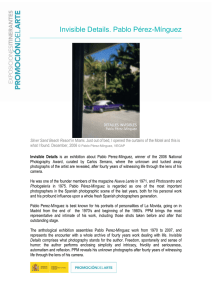– ar verbs – er verbs – ir verbs – ía – ías – íais – ía – ían – ía – ías
Anuncio
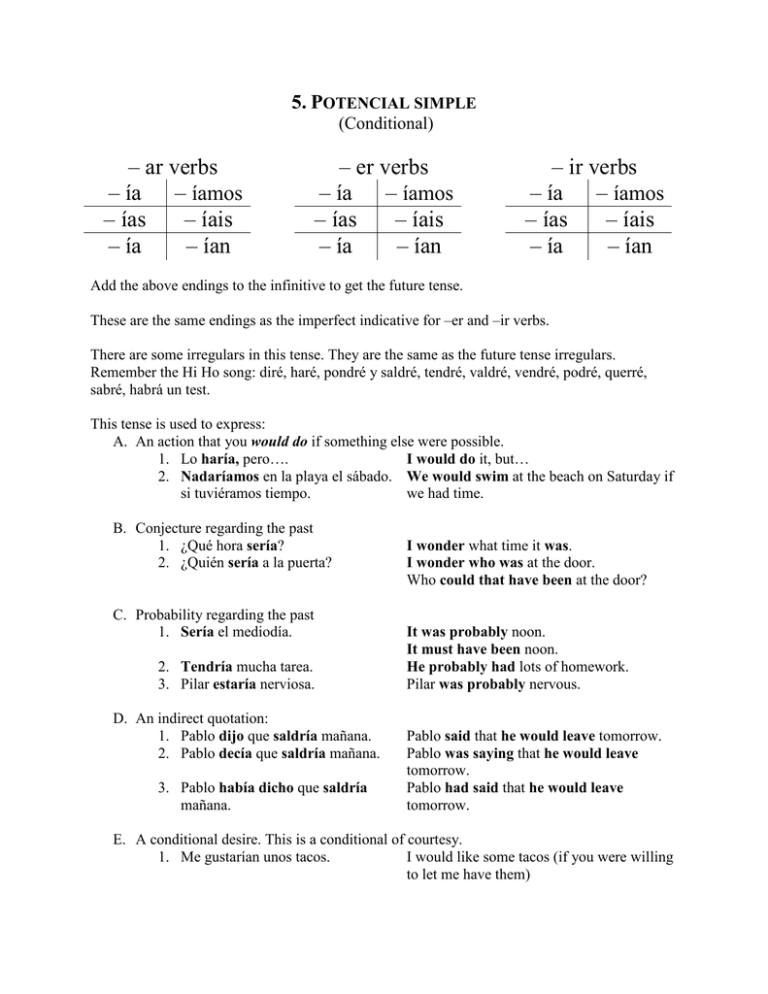
5. POTENCIAL SIMPLE (Conditional) – ar verbs – ía – íamos – ías – íais – ía – ían – er verbs – ía – íamos – ías – íais – ía – ían – ir verbs – ía – íamos – ías – íais – ía – ían Add the above endings to the infinitive to get the future tense. These are the same endings as the imperfect indicative for –er and –ir verbs. There are some irregulars in this tense. They are the same as the future tense irregulars. Remember the Hi Ho song: diré, haré, pondré y saldré, tendré, valdré, vendré, podré, querré, sabré, habrá un test. This tense is used to express: A. An action that you would do if something else were possible. 1. Lo haría, pero…. I would do it, but… 2. Nadaríamos en la playa el sábado. We would swim at the beach on Saturday if si tuviéramos tiempo. we had time. B. Conjecture regarding the past 1. ¿Qué hora sería? 2. ¿Quién sería a la puerta? C. Probability regarding the past 1. Sería el mediodía. 2. Tendría mucha tarea. 3. Pilar estaría nerviosa. D. An indirect quotation: 1. Pablo dijo que saldría mañana. 2. Pablo decía que saldría mañana. 3. Pablo había dicho que saldría mañana. I wonder what time it was. I wonder who was at the door. Who could that have been at the door? It was probably noon. It must have been noon. He probably had lots of homework. Pilar was probably nervous. Pablo said that he would leave tomorrow. Pablo was saying that he would leave tomorrow. Pablo had said that he would leave tomorrow. E. A conditional desire. This is a conditional of courtesy. 1. Me gustarían unos tacos. I would like some tacos (if you were willing to let me have them)
